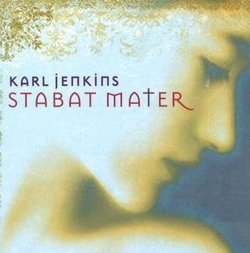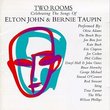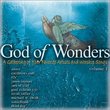| All Artists: Karl Jenkins, Jurgita Adamonyte, Royal Liverpool Philharmonic Orchestra, Belinda Sykes Title: Karl Jenkins: Stabat Mater Members Wishing: 0 Total Copies: 0 Label: Angel Records Original Release Date: 1/1/2008 Re-Release Date: 4/1/2008 Genre: Classical Styles: Opera & Classical Vocal, Chamber Music, Historical Periods, Classical (c.1770-1830), Modern, 20th, & 21st Century Number of Discs: 1 SwapaCD Credits: 1 UPCs: 400000006352, 5099950028320 |
Search - Karl Jenkins, Jurgita Adamonyte, Royal Liverpool Philharmonic Orchestra :: Karl Jenkins: Stabat Mater
 | Karl Jenkins, Jurgita Adamonyte, Royal Liverpool Philharmonic Orchestra Karl Jenkins: Stabat Mater Genre: Classical
Following the success of "This Land of Ours", a set of arrangements for brass band and male voice choir that took Britain's most popular living composer back to his Welsh roots, Karl Jenkins returns with a new work to comp... more » |
Larger Image |
CD DetailsSynopsis
Album Description Following the success of "This Land of Ours", a set of arrangements for brass band and male voice choir that took Britain's most popular living composer back to his Welsh roots, Karl Jenkins returns with a new work to complement his massively successful "Requiem" and "Armed Man". The at once emotional, modern, culturally diverse and universally accessible style that has come to characterise the composer's sound is perfectly exemplified in this poignant new choral album. Stabat Mater is a thirteenth century Roman Catholic sequence attributed to Jacopone da Todi. It has been set to music by many composers, among them Haydn, Dvorak, Vivaldi, Rossini, Pergolesi, Stanford, Gounod, Penderecki, Poulenc, Szymanowski, Alessandro Scarlatti (1724), Domenico Scarlatti (1715), Pedro de Escobar, Arvo Pärt and Giuseppe Verdi. Its title is an abbreviation of the first line, Stabat Mater Dolorosa ("The sorrowful mother was standing"). The hymn, one of the most powerful and immediate of medieval poems, meditates on the suffering of Mary, Jesus Christ's mother, during his crucifixion. Karl's setting extends this to a universal depiction of grief by using ancient text from the area (Holy Land/Middle East) that will be sung in Hebrew, Greek and Aramaic (the lingua franca of the period) and a contemporary poem, sung in English. The orchestration includes instruments indigenous to the area, percussion such as the darbuka & riq and the woodwind duduk. There are two soloists, both female singers, Jurgita Adamonyte and Belinda Sykes, who doubles on duduk or mey, a middle eastern ancient woodwind instrument. The world premiere performance of the Stabat Mater will take place in Liverpool on 15th March 2008. Similarly Requested CDs
|
CD ReviewsJenkins is no Brahms or Mahler, but... T. N. Mackan | Hamilton ON Canada | 06/25/2008 (3 out of 5 stars) "There are religious texts set to music for choir and orchestra that outrank Jenkins's "Stabat Mater", but for moments of orchestral and choral effectiveness, the Jenkins is most commendable. It is always listenable and often moving. There is a sameness to the listening experience as the music evolves... Jenkins seems more intent of creating an effect than in giving this ancient poem a new reading or a new life. I do admire the work, however, and would pay well to hear it in live concert should that opportunity arise. In the meantime, this recording a good value for the dollar." Exciting work Howard Garrett | Montgomery, NY | 10/05/2009 (5 out of 5 stars) "Perhaps snobby, overly sophistacated critics might poo-poo Jenkins, but I find his music exciting, varied and well worth listening to over and over again. This recently written Stabat Mater is absolutely beautiful, in parts exciting. It is so good to find a contemporary composer who believes in melody. Bravo, Karl. Keep writing and I will keep buying." Good Friday Emotional Sweep Poe | Los Angeles, California | 03/15/2010 (5 out of 5 stars) "This recording of Karl Jenkins' Stabat Mater shows the depth of the grief of the mother of Jesus. Using the languages of the period, Aramaic and early Arabic, Jenkins' shows emotions through a 13th century poem set to soaring music. The middle eastern emphasis with native percussion instruments interprets the story in heart-rending tones, emerging with a chorus of hope at the conclusion.
" |

 Track Listings (12) - Disc #1
Track Listings (12) - Disc #1


![Wow 1997: The Year's 30 Top Christian Artists & Songs [ECD]](https://nationalbookswap.com/cd//m/51/1351/241351.jpg)





